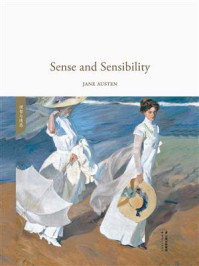





|
xviii |

|
ALTHOUGH the Divers were honestly apathetic to organized fashion, they were nevertheless too acute to abandon its contemporaneous rhythm and beat—Dick's parties were all concerned with excitement, and a chance breath of fresh night air was the more precious for being experienced in the intervals of the excitement.
The party that night moved with the speed of a slapstick comedy. They were twelve, they were sixteen, they were quartets in separate motors bound on a quick Odyssey over Paris. Everyting had been foreseen. People joined them as if by magic, accompanied them as specialists, almost guides, through a phase of the evening, dropped out and were succeeded by other people, so that it appeared as if the freshness of each one had been husbanded for them all day. Rosemary appreciated how different it was from any party in Hollywood, no matter how splendid in scale. There was, among many diversions, the car of the Shah of Persia. Where Dick had commandeered this vehicle, what bribery was employed, these were facts of irrelevance. Rosemary accepted it as merely a new facet of the fabulous, which for two years had filled her life. The car had been built on a special chassis in America. Its wheels were of silver, So was the radiator. The inside of the body was inlaid with innumerable brilliants which would be replaced with true gems by the court jeweler when the car arrived in Teheran the following week. There was only one real seat in back, because the Shah must ride alone, so they took turns riding in it and sitting on the marten fur that covered the floor.
But always there was Dick. Rosemary assured the image of her mother, ever carried with her, that never, never had she known any one so nice, so thoroughly nice as Dick was that night. She compared him with the two Englishmen, whom Abe addressed conscientiously as "Major Hengest and Mr. Horsa," and with the heir to a Scandinavian throne and the novelist just back from Russia, and with Abe, who was desperate and witty, and with Collis Clay, who joined them somewhere and stayed along—and felt there was no comparison. The enthusiasm, the selflessness behind the whole performance ravished her, the technic of moving many varied types, each as immobile, as dependent on supplies of attention as an infantry battalion is dependent on rations, appeared so effortless that he still had pieces of his own most personal self for everyone.
—Afterward she remembered the times when she had felt the happiest. The first time was when she and Dick danced together and she felt her beauty sparkling bright against his tall, strong form as they floated, hovering like people in an amusing dream—he turned her here and there with such a delicacy of suggestion that she was like a bright bouquet, a piece of precious cloth being displayed before fifty eyes. There was a moment when they were not dancing at all, simply clinging together. Some time in the early morning they were alone, and her damp powdery young body came up close to him in a crush of tired cloth, and stayed there, crushes against a background of other people's hats and wraps….
The time she laughed most was later, when six of them, the best of them, noblest relics of the evening, stood in the dusky front lobby of the Ritz telling the night concierge that General Pershing was outside and wanted caviare and champagne. "He brooks no delay. Every man, every gun is at his service." Frantic waiters emerged from nowhere, a table was set in the lobby, and Abe came in representing General Pershing while they stood up and mumbled remembered fragments of war songs at him. In the waiters' injured reaction to this anti-climax they found themselves neglected, so they built a waiter trap—a huge and fantastic device constructed of all the furniture in the lobby and functioning like one of the bizarre machines of a Goldberg cartoon. Abe shook his head doubtfully at it.
"Perhaps it would be better to steal a musical saw and—"
"That's enough," Mary interrupted. "When Abe begins bringing up that it's time to go home." Anxiously she confided to Rosemary:
"I've got to get Abe home. His boat train leaves at eleven. It's so important—I feel the whole future depends on his catching it, but whenever I argue with him he does the exact opposite."
"I'll try and persuade him," offered Rosemary.
"Would you?" Mary said doubtfully. "Maybe you could."
Then Dick came up to Rosemary:
"Nicole and I are going home and we thought you'd want to go with us."
Her face was pale with fatigue in the false dawn. Two wan dark
spots in her cheek marked where the color was by day.
"I can't," she said. "I promised Mary North to stay olong with them—or Abe'll never go to bed. Maybe you could do something."
"Don't you know you can't do anything about people?" he advised her. "If Abe was my room-mate in college, tight for the first time, it'd be different. Now there's nothing to do."
"Well, I've got to stay. He says he'll go to bed if we only come to the Halles with him," she said, almost defiantly.
He kissed the inside of her elbow quickly.
"Don't let Rosemary go home alone," Nicole called to Mary as they left. "We feel responsible to her mother."
—Later Rosemary and the Norths and a manufacturer of dolls' voices from Newark and ubiquitous Collis and a big splendidly dressed oil Indian named George T. Horseprotection were riding along on top of thousands of carrots in a market wagon. The earth in the carrot beards was fragrant and sweet in the darkness, and Rosemary was so high up in the load that she could hardly see the others in the long shadow between infrequent street lamps. Their voices came from far off, as if they were having experiences different from hers, different and far away, for she was with Dick in her heart, sorry she had come with the Norths, wishing she was at the hotel and him asleep across the hall, or that he was here beside her with the warm darkness streaming down.
"Don't come up," she called to Collis. "the carrots will all roll." She threw one at Abe who was sitting beside the driver, stiffly like an old man….
Later she was homeward bound at last in broad daylight, with the pigeons already breaking over Saint-Sulpice. All of them began to laugh spontaneously because they knew it was still last night while the people in the streets had the delusion that it was bright hot morning.
"At last I've been on a wild party," thought Rosemary, "but it's no fun when Dick isn't there."
She felt a little betrayed and sad, but presently a moving object came into sight. It was a huge horse-chestnut tree in full bloom bound for the Champs élysées, strapped now into a long truck and simply shaking with laughter—like a lovely person in an undignified position yet confident none the less of being lovely. Looking at it with fascination Rosemary identified herself with it, and laughed cheerfully with it, and everything all at once seemed gorgeous.


